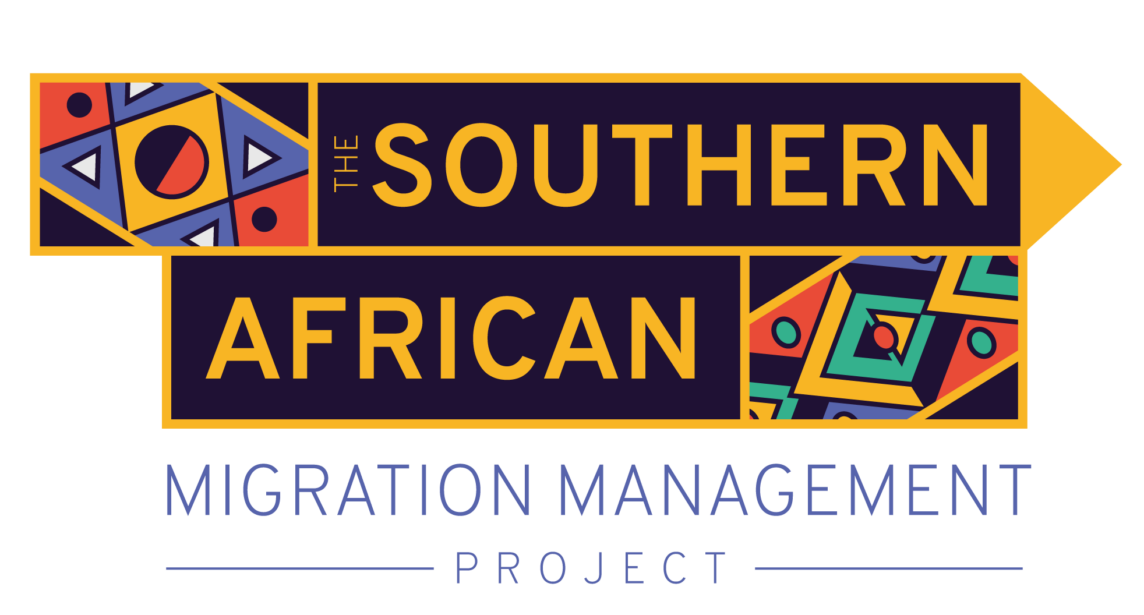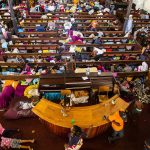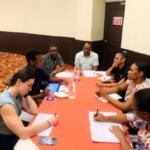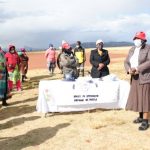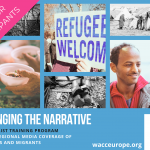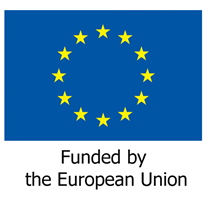The Southern Africa Migration Management Project (SAMM) is offering scholarships to obtain a Diploma for Labour Migration Experts and Practitioners, providing an opportunity for participants to master the qualitative understanding of labour migration governance and protection of migrant workers’ rights through a package of intensive and challenging training courses – distance learning and residential phases to be furthered complemented by a capstone project in one of the fields of expertise covered in the programme.
The scholarships are being offered to national tripartite constituents (3 representatives of the Ministry of Labour, 3 representatives of workers’ organisations, and 3 representatives of employers’ organisations) of each of the 16 SADC countries to obtain the “Diploma for Labour Migration Experts and Practitioners”. In addition, the SAMM project is offering 9 scholarships per Regional Economic Community (SADC, COMESA, IOC): 3 to Ministries of Labour represented at the RECs level, and 3 to Workers’ representation and Employers’ representation each. In total, SAMM will be able to offer 9 scholarships to each country + 9 to each RECs.
On achieving the Diploma for Labour Migration Experts and Practitioners, successful candidates will gain advanced knowledge in core areas of Labour Migration and cutting-edge skills to design policies, which ensure and optimize governance of Labour Migration, be able to demonstrate the achievement through a recognised certification from the ITCILO; and be part of a growing network of Labour Migration Experts and Practitioners to serve as an ongoing platform for exchange.
The training activities developed under the Diploma emphasizes experiential, results-based, learner centred methodologies such as lectures, discussions, case studies, open discussion, role-play exercises and extensive group work in which learning needs are assessed and matched and aligned with principles and guidance intended to turn learning outcomes into practice under seven main themes:
- Gender-sensitive labour migration policies and/or strategies regulating labour migration at national and/or regional level;
- International labour standards, national legislation on the protection of migrant workers and promoting an evidence-based public discourse;
- Bilateral labour migration agreements (BLMAs) across the region and with third countries;
- Fair recruitment and decent employment for migrant workers including regulatory legislation on Private Employment Agencies (PEAs), and strengthening of Public Employment Services (PES)’ capacity;
- Social Security Portability of Benefits for migrant workers;
- Recognition of qualifications of migrant workers at national and bilateral level, as well as support to Regional Qualifications Frameworks at REC’s level;
- Labour migration statistics (indicators, module, inclusion in labour market information systems, etc).
Other areas that will be also covered are the following:
- Labour Migration Administration;
- Refugees and IDPs’ access to the labour market;
- Impact of immigration on developing countries’ economies;
- Reducing Remittances’ transfer cost;
- The role of migrant workers and the Diaspora in attaining the SDGs.
 Português
Português